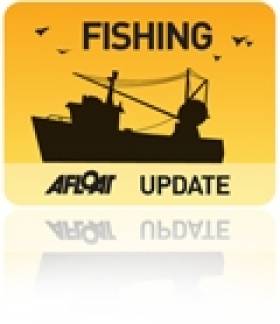Displaying items by tag: North Atlantic Salmon Conservation Organisation
Drogheda Hosts North Atlantic Salmon Conference
#Fishing - Drogheda is hosting the 30th annual meeting of the North Atlantic Salmon Conservation Organisation (NASCO) this week till Friday 7 June.
The prestigious fisheries conference will take place in the Westcourt Hotel and will be attended by delegates from Canada, Denmark (in respect of the Faroe Islands and Greenland), the European Union (representing its 27 member states), Norway, Russia and the USA.
Welcoming the conference to Drogheda on Tuesday 4 June, Minister Fergus O’Dowd said it "will continue the key work of NASCO, using the best scientific information, and international co-operation to conserve and manage Atlantic salmon populations.
"I wish the many delegates a friendly and intellectually stimulating stay in Drogheda where the meeting programme will no doubt provide insights and an outstanding platform for dynamic networking to ensure the continued conservation of our precious salmon stocks."
Based in Edinburgh, NASCO is an international organisation established by an intergovernmental convention in 1984. Its main function is to conserve, restore, enhance and rationally manage Atlantic salmon through international cooperation taking account of the best available scientific information.
NASCO is the only intergovernmental organisation with this mandate, which it implements through international consultation, negotiation and co-operation.
Ireland is at the forefront of salmon conservation internationally, according to Inland Fisheries Ireland, which adds that Irish participants at the conference include a Government delegation of managers and scientists and representatives of a number of Irish-based NGOs, including Salmon Watch Ireland.
The cross-border Loughs Agency, which has responsibility for salmon conservation and protection Foyle and Carlingford Loughs, will also be represented as part of the Irish delegation.





























































